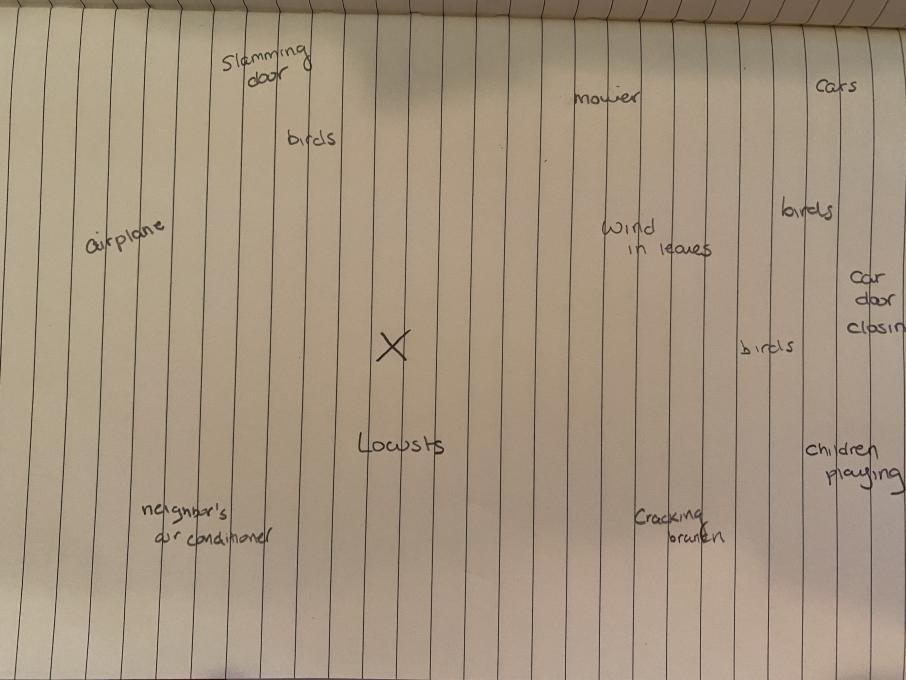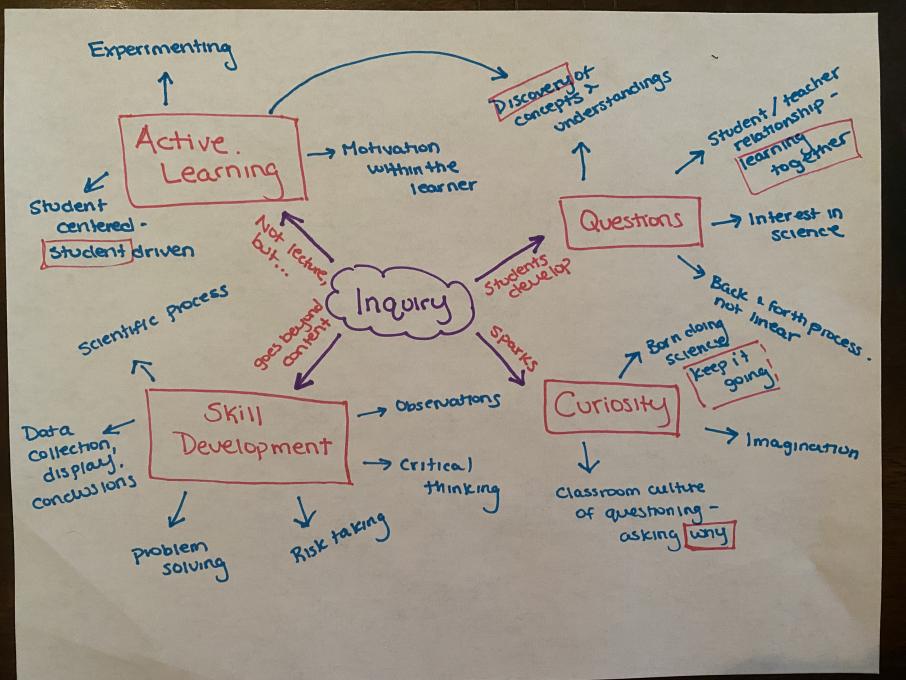Lori
Forum Replies Created
Viewing 12 posts - 1 through 12 (of 12 total)
-
LoriParticipantI love to do inquiry based projects with my students because there is so much feedback between the time the project begins and when the grade is assigned. I find that motivated students are very successful on these types of projects because they are constantly going back and revising based on feedback provided by me and/or their peers. I always provide a grading checklist at the beginning of the project for students to review so they know what is expected of them throughout each step of the process. This has worked well and students are actually able to grade themselves prior to submitting their final paper. Feedback and one on one meetings have always been moments though where I think the most learning is happening and is something I want to make a priority even though it never feels like there is enough time.
-
LoriParticipantMy biggest challenge as always been time (as mentioned by others). I have a lot of flexibility in my curriculum and was able to do a citizen science project as well as a science research project with my 8th grade students each year. Our schedule shifted and now I do not see my students for the entire year anymore, but instead two non consecutive terms. During this past year I was still able to do my citizen science project, but lost the science research project. To try to tackle this problem (I haven't yet!) I am going to try to stop worrying so much about it being perfect and just see what the students can accomplish in the time we do have. I love the idea of doing the citizen science project at the beginning of the year and allowing that to generate questions for our research projects. I know that the experience will benefit the students even if the final product isn't exactly where it needs to be.
-
LoriParticipantI have always wanted to try to do Project FeederWatch in my classroom. I took this opportunity to look at the data that was available and was impressed by the number of participants and how that data was organized for you to review. The database was accessible to anyone and was easy to use. There was a map showing locations of feeders, information about specific bird species (where they were found, numbers seen together), and trend graphs that could be viewed for different species and even allowed you to make comparisons. Prior to doing any citizen science project I like to have my students spend time on the website to see how their data will be processed and what they are contributing to. I could see my students using this data to make predictions about what they think they will see on campus and then make comparisons afterwards to see if it aligns with other data or not. I would also like them to compare geographic locations as well as how populations of birds have changed over time in different parts of the country. When looking at the data I started to ask a lot of questions and I think the same thing could happen for my students, which would be a great start to the project and collecting our own data.
-
LoriParticipantOne strategy that I use to promote deeper observational and experimental questions is to take my students outside. When students begin to look around they naturally have questions, especially if we go to an area of campus they haven't been to before. We have a garden club in our middle school and when we return to campus in the fall it typically looks wild and has very large plants and some vegetables still growing from the summer. It is really interesting to hear the students ask questions about this space and begin to question why it looks the way it does and what happens in this area. During our conversations other questions are asked and most go beyond reference questions. I hope to do more of this throughout the year and take advantage of the amazing outdoor space and trails that I have available to me.
-
LoriParticipantI was really interested in trying iNaturalist, but based on our conversations thought I should also try Seek by iNaturalist. The app was really easy to use and I think this could be a great tool to help students begin to make observations about our school campus as well as their backyards. One challenge I experienced was trying to get a good enough picture to be able to identify the plants in my backyard. I think if students were given enough time to practice this could be a very useful app for students to use throughout the year. I could see myself incorporating this app into my observation lessons as well as my ecology unit. The information shared with students would be wonderful to begin to make comparisons between different ecosystems as well as become aware of what grows in theirs and begin to ask the question of why.
-
LoriParticipantI think going outside is an awesome way to get students questioning their environment. I think it is also important to provide time and space to have students observe and wonder. I know that is always something I struggle with because it feels like we are always on a tight timeline. One goal for this upcoming school year is to slow down and explore. My school encourages this so it is important that I take advantage of it! In MS I think it is also important to help students learn how to ask open ended questions and know that sometimes there will not be an immediate answer provided. I hope this is a process that I can do along side my students and they can also watch me model these behaviors.
-
LoriParticipantI really enjoyed creating my sound map. By closing my eyes and just listening it made me so much more aware of the sounds in my own backyard that I often ignore. I start off the year doing several different observation activities and I think this would be a great addition for my middle school students. While creating my sound map I heard a lot of birds! I think that my students would have a similar experience on our campus, which would be a great introduction to our birding activities. I also notice that it is very hard to some students to make quality observations and just record things that they see. One thing I am always trying to work on with my students in slowing down and looking at the small things.

-
LoriParticipantOur school is located on a very large campus that I want to help my students explore. We have gone outside in the past to do our eBird observations, but I know that there are so many more connections we can make. At the beginning of the year I want to spend more time working on observations in different parts of our campus and get the students asking questions. One thing I have always wanted to improve was how I collected student questions and made them visible to other learners. My hope in collecting and sharing class questions would be to promote a classroom culture of curiosity. Questions based on their observations could then lead to different projects and investigations throughout the school year.
-
LoriParticipantI think it is so important to teach locally and connect globally. I teach middle school boys so it is important for them to be able to see some connection to their life to build a better understanding of what we are learning. I hope to continue to model this for my students to help them understand that what is happening in their lives and on a local level impacts the larger community and world. I want to continue to model this in the labs, readings, and activities that my students are engaged in.
-
LoriParticipantI have used both eBird and Celebrate Urban Birds with my 8th grade students. I really liked how Celebrate Urban Birds limited the number of birds that students were trying to identify and also only required them to go out 3 times to complete the study. This fit well into the amount of time that we had for the project and the students were able to make great observations. I really liked using Celebrate Urban Birds during Covid when students were making observations on our virtual days in their backyards. It brought up a lot of great questions and conversations about the types of birds seen based on location (town, wooded, open space, etc.).
-
LoriParticipantOne experiment I do at the beginning of the school year is looking at how the amount of water can impact the growth of radish seeds. Students are given the question and then are asked to design an experiment, create a data table to record their observations, collect data over 2 weeks, graph their results, and develop and share their conclusions. Throughout this process we work together at each step on different scientific skills (research, data collection, graphing, etc.) I would classify this as guided inquiry. Students receive a lot of feedback along the way to support the process to develop the skills they will need in future experiments throughout the year. Skills focused on are research, observations (measurements), data collection, graphing, analyzing data, collaboration, problem solving. I am hoping to modify this experiment this coming school year by providing the students with a problem and a broader question that encourages them to develop their own questions and experiments. We have a school garden that our Middle School students work in that I would like to connect to. Instead of all students having the same question, I would like to present them with a problem we are having in the school garden and let them develop their own questions. I think this would create more interest in the project as they are able to see the direct connection to the garden and our community project.
-
LoriParticipantAs I read the article I was able to put my ideas into four different categories to help me describe inquiry. I used these four categories to create by concept map as well as modify my own definition of inquiry. Inquiry encourages students to look at the world around them and ask questions, which leads to the discovery of meaningful concepts and understandings. When participating in inquiry, students must take an active role in their learning and the teacher is no longer the provider of information, but instead on the journey along with the students as a learner themselves. The process of inquiry sparks curiosity within the students encouraging them to continue to explore and ask questions. Throughout the process students learn far more than content, but also develop skills such as observation, problem solving, and critical thinking, and risk taking.
 in reply to: Virtual Educator Retreat: Intro to Inquiry #824640
in reply to: Virtual Educator Retreat: Intro to Inquiry #824640
Viewing 12 posts - 1 through 12 (of 12 total)

